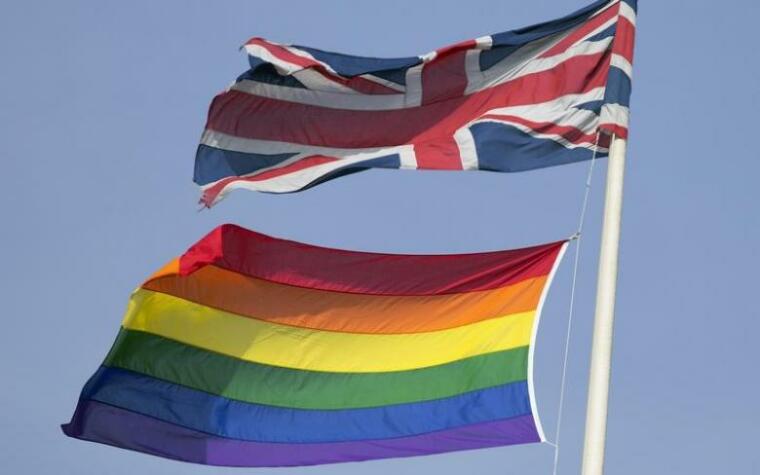Only half of LGBT-affirming churches in Wales and England have officiated same-sex marriage, survey finds

Only around half of churches that permit same-sex marriage in Wales and England have actually officiated wedding ceremonies, according to a recent study.
According to Researchers at Leeds and York universities, only 83 same-sex wedding ceremonies have been held at churches in both regions since such nuptials were legalized four years ago.
Only 182 places of worship out of 40,000 are registered to hold same-sex weddings, and only about half of those registered venues have actually hosted one.
The research team reported that over half of the places of worship that had conducted same-sex wedding ceremonies have done so on only once occasion, and only five had solemnized four or more ceremonies. They further noted that the highest number of same-sex weddings conducted in any place of worship was 10.
The survey of 71 places of worship indicated that three-quarters of churches that had performed a same-sex marriage provided a religious ceremony to same-sex couples that had not previously attended the church, indicating that they were excluded from marrying in their usual place of worship.
"This report shows that same-sex couples are at a significant disadvantage to different-sex couples, because same-sex couples are more likely to live in an area where there is no scope to be married in a place of worship according to a desired religious ceremony," said Dr. Silvia Falcetta, from the University of York's Department of Sociology.
The study further noted that registering a church for same-sex marriage can cause conflict within a congregation, as well as opposition and antagonism from other religious groups nearby.
However, Prof. Paul Johnson, head of the sociology department at York, said that registering for same-sex marriage have also produced some positive benefits.
"Some places of worship regard their commitment to same-sex marriage as a positive way of advertising and marketing their faith and practice," he said, according to The Yorkshire Post.
The 2013 law that legalized same-sex marriage provides protections for ministers, choristers and others who do not want to participate, but the researchers noted that very few people had taken advantage of the provision.
"In 90 per cent of places of worship, no person has refused to participate in a same-sex marriage ceremony," said Prof. Robert Vanderbeck of Leeds University.
According to Evangelical Focus, the churches hat have registered to offer same-sex weddings are part of the Baptist, Lutheran and the United Reformed Church denominations. However, not all of the churches in those denominations have the same stance on the issue of homosexuality.
The Church of England still does not bless same-sex unions, but upcoming debates in the General Synods indicate that a majority could soon vote in favor of such unions.
 Christians don't have to affirm transgenderism, but they can’t express that view at work: tribunal
Christians don't have to affirm transgenderism, but they can’t express that view at work: tribunal Archaeology discovery: Medieval Christian prayer beads found on Holy Island
Archaeology discovery: Medieval Christian prayer beads found on Holy Island Presbyterian Church in America votes to leave National Association of Evangelicals
Presbyterian Church in America votes to leave National Association of Evangelicals Over 50 killed in 'vile and satanic' attack at Nigerian church on Pentecost Sunday
Over 50 killed in 'vile and satanic' attack at Nigerian church on Pentecost Sunday Ukrainian Orthodox Church severs ties with Moscow over Patriarch Kirill's support for Putin's war
Ukrainian Orthodox Church severs ties with Moscow over Patriarch Kirill's support for Putin's war Islamic State kills 20 Nigerian Christians as revenge for US airstrike
Islamic State kills 20 Nigerian Christians as revenge for US airstrike Man who served 33 years in prison for murder leads inmates to Christ
Man who served 33 years in prison for murder leads inmates to Christ


 Nigerian student beaten to death, body burned over ‘blasphemous’ WhatsApp message
Nigerian student beaten to death, body burned over ‘blasphemous’ WhatsApp message 'A new low': World reacts after Hong Kong arrests 90-year-old Cardinal Joseph Zen
'A new low': World reacts after Hong Kong arrests 90-year-old Cardinal Joseph Zen Iran sentences Christian man to 10 years in prison for hosting house church worship gathering
Iran sentences Christian man to 10 years in prison for hosting house church worship gathering French Guyana: Pastor shot dead, church set on fire after meeting delegation of Evangelicals
French Guyana: Pastor shot dead, church set on fire after meeting delegation of Evangelicals ‘Talking Jesus’ report finds only 6% of UK adults identify as practicing Christians
‘Talking Jesus’ report finds only 6% of UK adults identify as practicing Christians Mission Eurasia ministry center blown up in Ukraine, hundreds of Bibles destroyed: 'God will provide'
Mission Eurasia ministry center blown up in Ukraine, hundreds of Bibles destroyed: 'God will provide' Church holds service for first time after ISIS desecrated it 8 years ago
Church holds service for first time after ISIS desecrated it 8 years ago Burger King apologizes for 'offensive campaign' using Jesus' words at the Last Supper
Burger King apologizes for 'offensive campaign' using Jesus' words at the Last Supper Uganda: Muslims abduct teacher, burn him inside mosque for praying in Christ’s name
Uganda: Muslims abduct teacher, burn him inside mosque for praying in Christ’s name